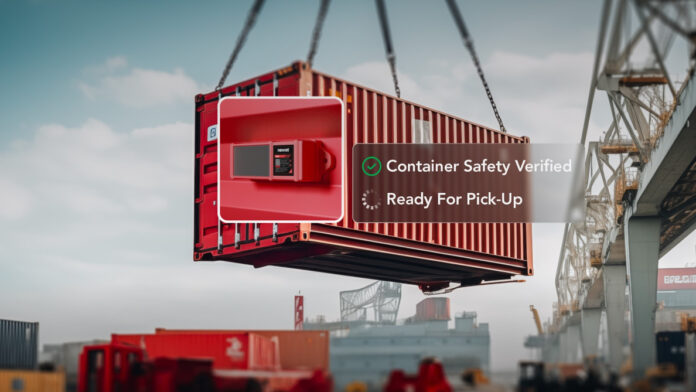Pairpoint, Vodafone’s ‘economy-of-things’ joint-venture (JV) business with Japanese trading and electric services company Sumitomo Corporation, has teamed up with professional services company Deloitte and IoT tracking firm Nexxiot to verify the provenance of IoT data in the international logistics market. The group is offering the service as a means for supply-chain companies to build trust around freight tracking and trade compliance.
Earlier this year, Vodafone and Sumitomo announced an 80/20 standalone JV to drive the development of automated machine-to-machine IoT transactions, under the banner of the ‘economy of things’. The JV has been branded as Pairpoint. Vodafone has contributed its blockchain-based Digital Asset Broker (DAB) IoT trading platform to the venture; Sumitomo is focused on drawing-in additional investors, partners, and customers.
Their new collaboration with Deloitte and Zurich-based Nexxiot uses the DAB platform, which uses blockchain to automatically verify transactions between IoT devices (without human intervention, but with human control), and is being pitched to the automotive, energy, manufacturing, and supply chain sectors. Vodafone said it can improve the “provenance of data relating to the routes and contents of shipping containers”.
Deloitte’s KYX solution, the product of a separate collaboration with Nexxiot, comprising the UK firm’s Know Your Client and Know Your Cargo services, and Nexxiot’s own freight solutions and sensors are also incorporated. The group said in a statement their blockchain-based freight-data reporting service will lead to “faster customs and port authority clearance and expedite the digital transformation of the logistics sector”.
They explained: “The audit trail generated by DAB will assist organisations to meet forthcoming regulatory requirements, including the accurate reporting of the origins of sources within their supply chains and ensuring the integrity of shipments and associated records. DAB also enables customers to create programmable smart contracts, further advancing the digitalisation and automation of supply chain processes.”
It continued: “This enables shipping containers to become intelligent agents capable of seamless interaction within the Economy of Things, including features like customs self-clearing containers and end-to-end shipping document digitalisation.”
Jorge Bento, chief executive at Pairpoint, commented: “We aim to offer significant advantages to stakeholders in the logistics sector by promoting surety and provenance of data in the shipping industry. Our goal is to enhance the efficiency of maritime logistics and streamline goods clearing customs and ports without introducing additional risk.”
Helena Lisachuk, global IoT lead at Deloitte, said: “We are dedicated to establishing ‘Green Lanes’ to minimise disruptions for cargo in global transit. Achieving this requires close collaboration with port authorities and engagement with global and regional justice organisations. Applying Nexxiot’s and PairPoint’s technology and knowledge to enable real-time monitoring and door-related event tracking, along with Deloitte’s expertise, offers new mechanisms to monitor data integrity during cargo movements.”
Stefan Kalmund, chief executive at Nexxiot, said: “We aim to identify operational inefficiencies or safety concerns while providing data provenance to various stakeholders, including shippers, carriers, port authorities, and trade financing partners. This is a significant step in supporting the digital economy of connected cargo and global goods movement.”

